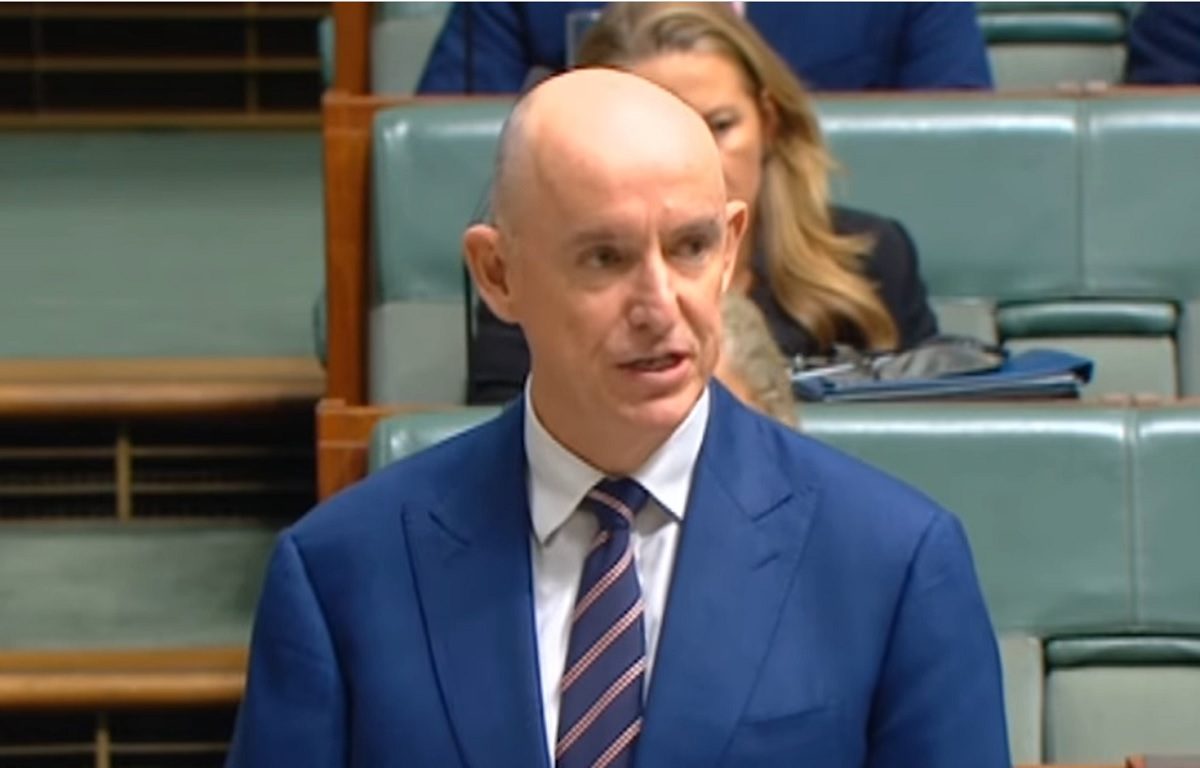
Former minister Stuart Robert was one of at least four Coalition ministers to veto research grants. Photo: Screenshot.
Federal ministers would lose their right to veto approved research funding if the government accepts recommendations of an independent review into the grants process.
Instead, the Australian Research Council would fully administer the grants program without the government of the day stepping in to interfere.
Only in cases where national security might be at risk would a minister be allowed to intervene.
The Trusting Australia’s Ability report, a review of the Australian Research Council Act 2001, has been publicly released and calls for an overhaul of the current system that allows a minister to ride roughshod over the funding process.
The report makes it clear that government ministers are not those best equipped to decide the merits of research projects.
“A strong theme underpinning the recommendations here is the need for the minister to exercise proper and necessary oversight of the guidelines and levels of funding available under the National Competitive Grants Program (NCGP),” the report states.
“The ARC chief executive officer should have the capability and expertise to oversee the administration of the grants program.
“Individual grants under the NCGP should not require approvals by the minister, but recommendations and approvals should be made by those best placed to judge the intrinsic merit of the proposals.
“There should be appropriate checks and balances and the minister should retain the means to intervene in the extraordinary circumstance of a potential threat to national security.
“Where the minister does exercise directions in relation to the NCGP, these would require transparency and parliamentary oversight.”
Education Minister Jason Clare ordered the review following accusations of ministerial interference in the grants process under the former Coalition government.
At least four Coalition ministers or acting ministers had vetoed approved applications on at least six occasions, most recently in 2021 when Stuart Robert, as the acting education minister, knocked six humanities projects on the head on Christmas Eve.
Academic experts led by Queensland University of Technology vice-chancellor Margaret Sheil undertook the six-month review and released their final report on Thursday (20 April) stating that ministerial interventions had “dramatically eroded” trust in the ARC over the past 20 years.
A streamlined two-stage funding proposal application process has been recommended to introduce preliminary applications before full proposals are invited – to lessen the burden on applicants.
The report also calls for greater support for Indigenous Australian academics through more fellowships and consultation.
Legislation should also be changed to reform how the ARC’s chief executive is appointed.
Peak representative body Science & Technology Australia commended the review panel on its legislative and regulatory recommendations.
“The ARC plays a crucial role in supporting Australia’s economy-boosting research sector. We’re delighted to see the expert panel have listened to the challenges faced by the sector and responded thoughtfully and cleverly,” CEO Misha Schubert said.
“The proposed changes would create stronger guardrails to prevent future political interference in the awarding of grants, safeguard the crucial investment in discovery breakthroughs, and profoundly relieve one of the major stresses on Australia’s research workforce.
“Shifting to a two-stage application would be a game changer for productivity, wellbeing and morale in Australia’s brilliant research workforce.
“It can free up researchers who currently spend hundreds of hours writing full funding applications – when around only one in five of those applications gets funded.
“We also welcome the recommendations to create stronger guardrails against political interference in awarding research grants, and to safeguard Australia’s investments in discovery breakthroughs.”
The government is now considering the report and the panel’s recommendations.
When in opposition, Labor ruled out removing ministerial approval powers, but Mr Clare is understood to now be open to the recommendation.














